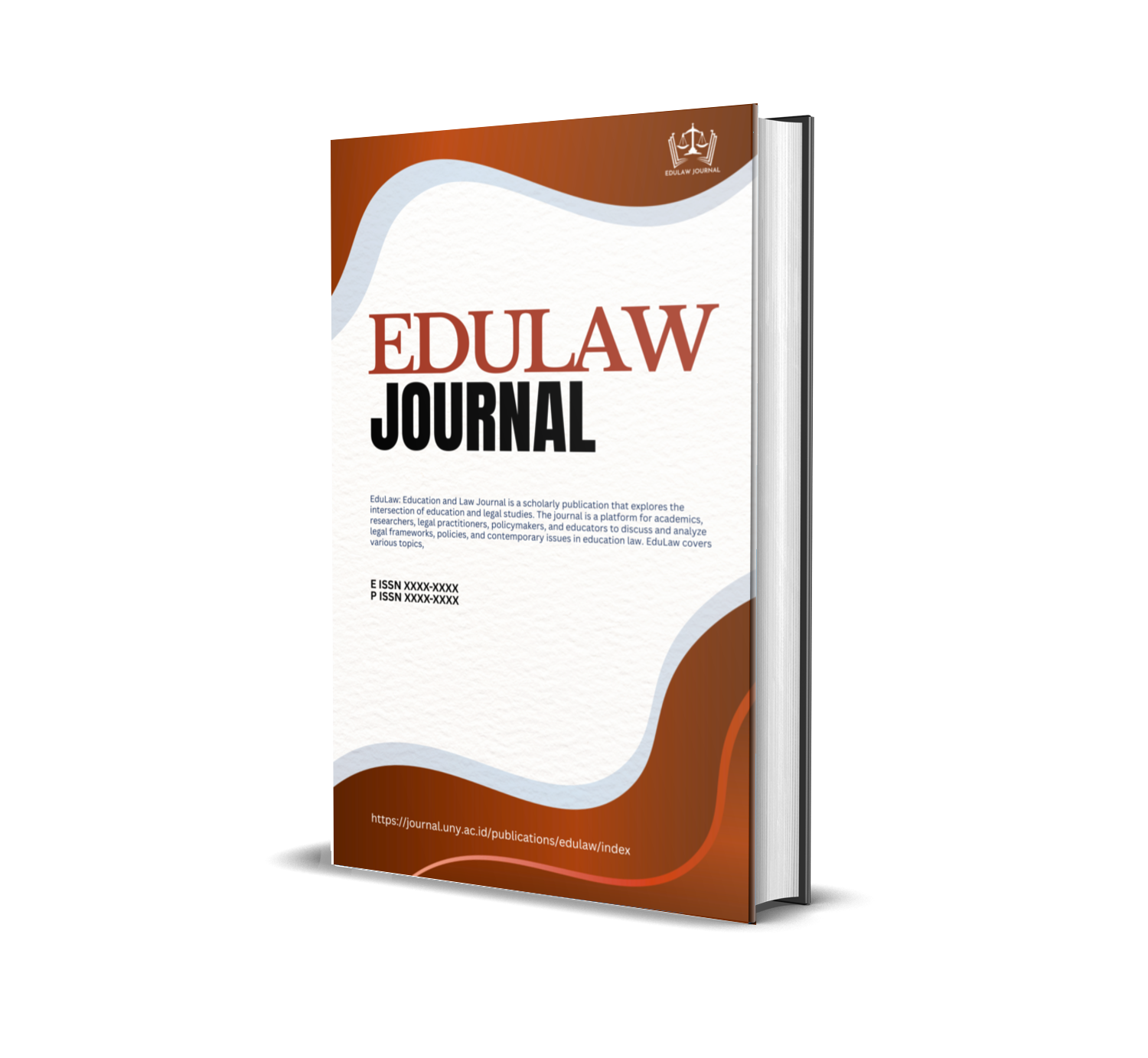About the Journal
| Journal title | Education of Law Journal |
| Initials | EduLaw |
| Abbreviation | EduLaw |
| Frequency | Biannually |
| DOI | 10.21831/edulaw |
| ISSN | 3123-7940 (Online) |
| Editor-in-chief | Benni Setiawan |
| Publisher | Universitas Negeri Yogyakarta |
| License | Creative Commons Attribution-ShareAlike 4.0 International (CC BY-SA 4.0) |
Education of Law Journal is a double-blind, peer-reviewed, open-access journal published by the Faculty of Law, Yogyakarta State University. The journal is dedicated to publishing high-quality research and conceptual papers that explore the intersection of law and education.
Education of Law Journal focuses on key areas such as criminal law, customary law, business law, private law, philosophy of law, legal theory, fundamental law, comparative law, and anything related to legal issues. The journal publishes two issues per year, in June and December.
Manuscript can be written in English, have never been published elsewhere, are original, and are not under consideration for other publications. The Edulaw editorial board uses Turnitin to check for plagiarism. Any manuscript with a similarity index above 17% will be rejected without further review.
All submissions must be made through the Education of Law Journal OJS system. The journal does not accept submissions via email. Only manuscripts that follow the submission guidelines will be considered. Letters of Acceptance (LoA) are only issued as formal notifications of accepted papers.








